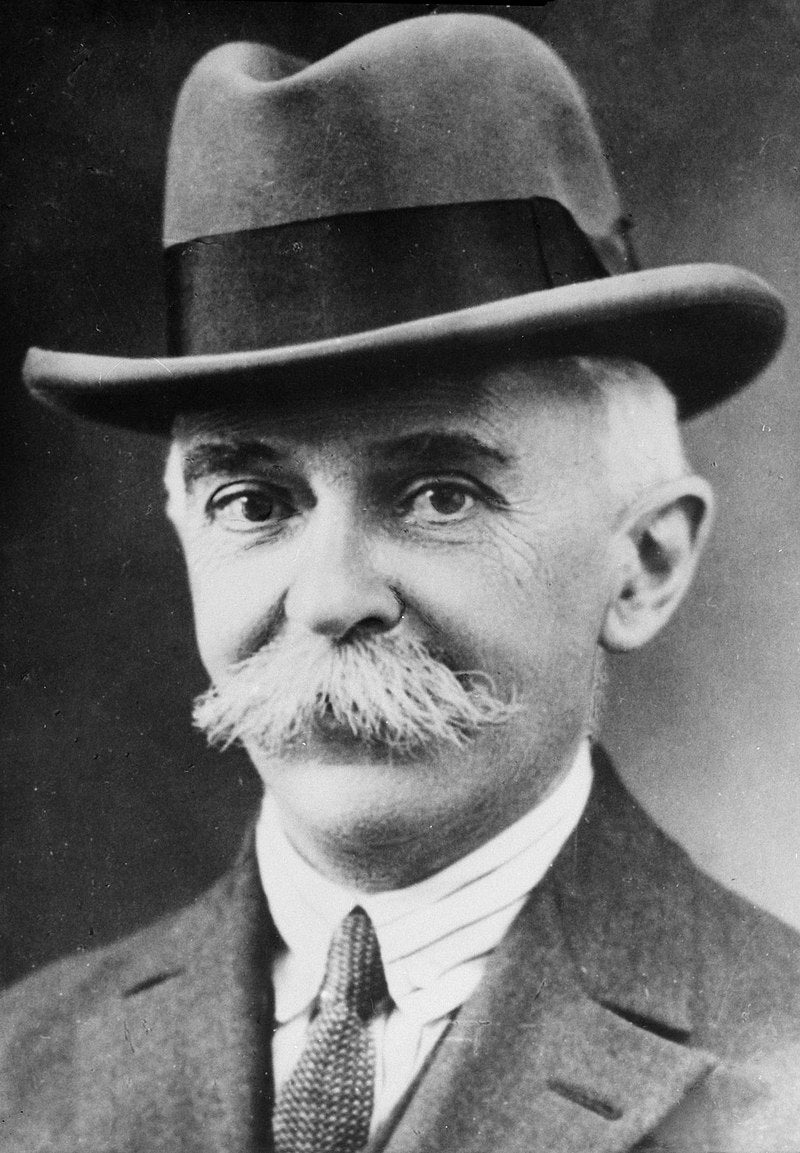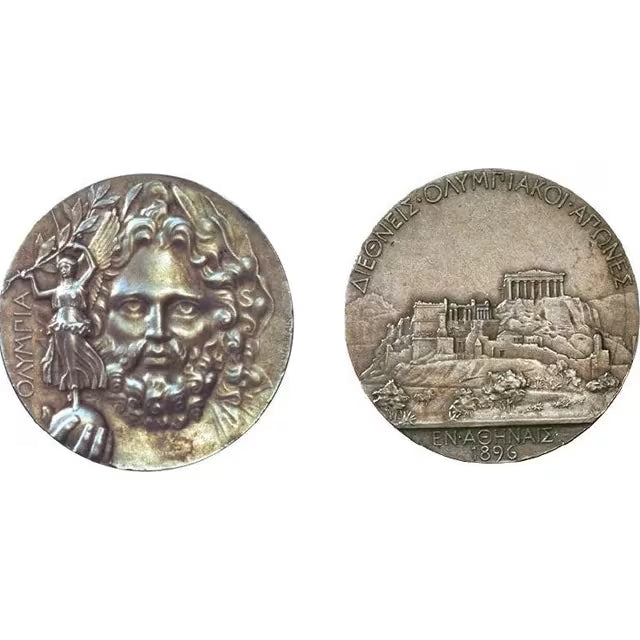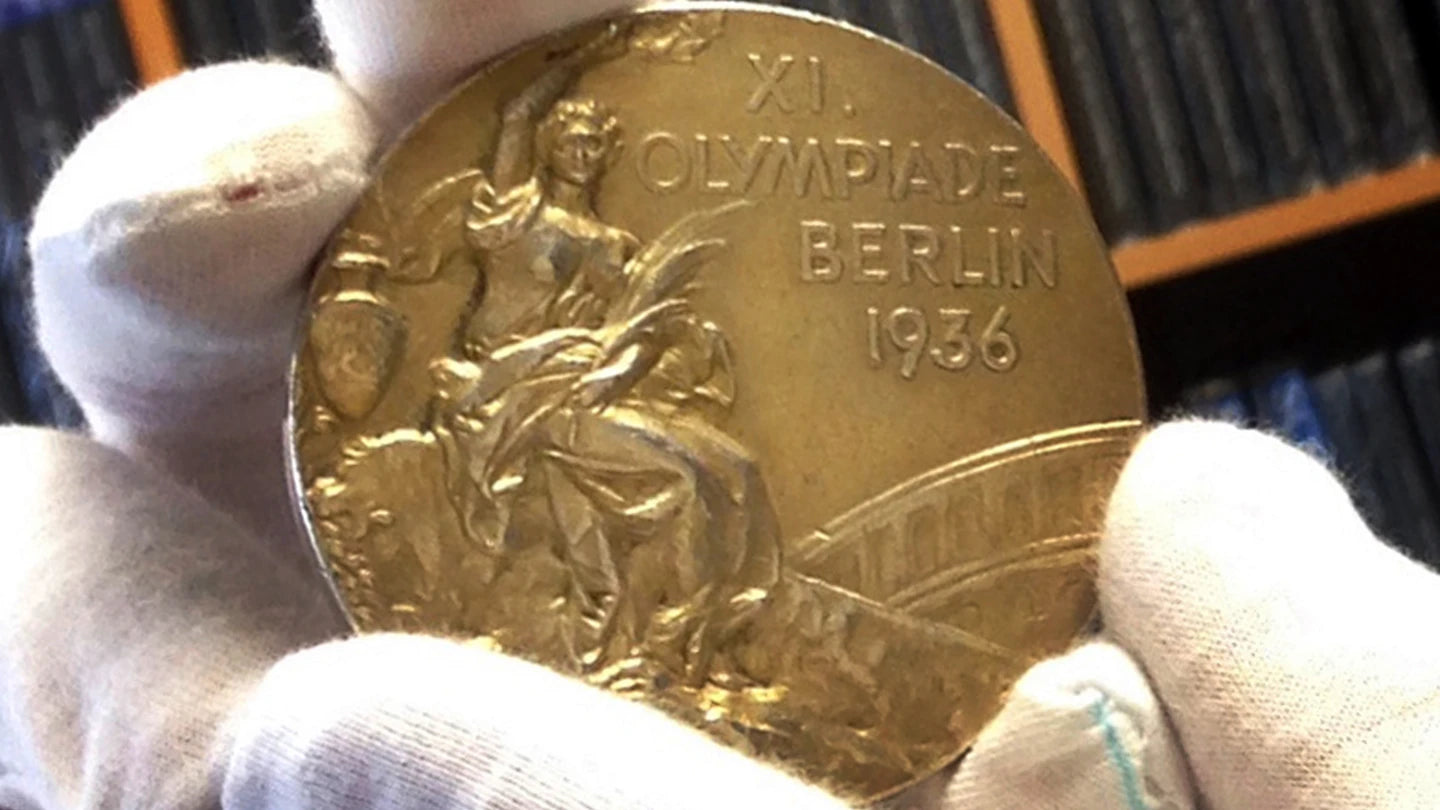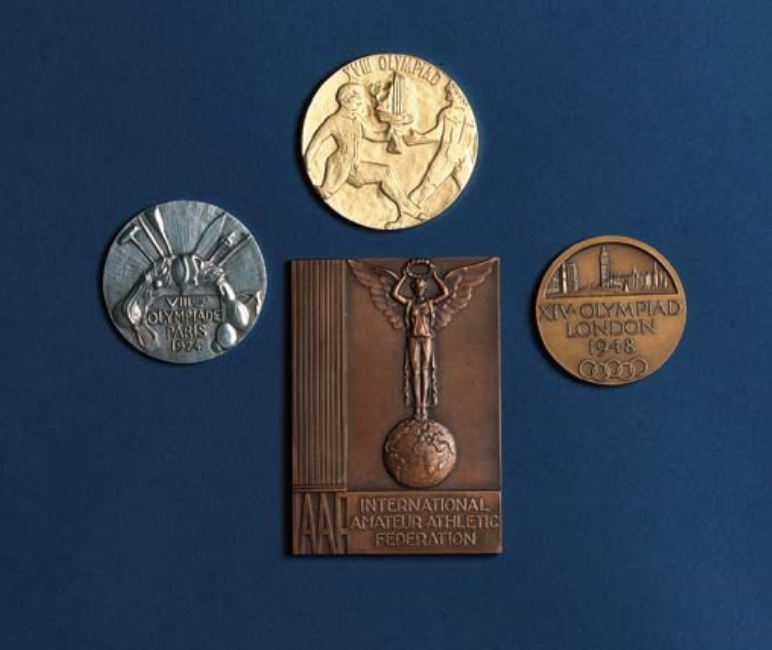This summer’s Paris Olympics are a powerful echo of the past for many of us.
And while we’re reminiscing, it’s worth remembering that Olympics memorabilia is an excellent theme for sport-inclined collectors.
This broad area takes in pretty much all of human endeavour. There are some wonderful stories - tragic as well as inspiring. And, any collector can find a specialism within it to suit their budget and interests.
French Olympic history

Pierre de Coubertin is the man most often credited as the founder of the modern Olympics.
France’s Pierre de Coubertin is the most well remembered founding father of the modern Olympics.
When the first games were held in his home city in 1900 they were little noticed - the competing world’s fair hoovered up all the coverage - but when they returned in 1924 for the VIII Olympiad the games were becoming a global festival.
That year 44 nations took part in 126 events in 17 venues.
To many of my age, 1924 is the Chariots of Fire Olympics.
One of the best sporting films of the late 20th century opens up another area for collectors - art and media inspired by or related to the Olympics.
How to collect Olympics memorabilia
The Olympics is an ancient institution.
Here, we’re focussing on the modern Olympics, revived (by De Coubertin and others) from around 1896.
The games are divided into summer (since 1896) and winter (since 1924) games that were held in the same year until 1992, when they split into separate 4-year cycles 2 years apart.
The Olympics host cities have been:
- 1896 Athens
- 1900 Paris
- 1904 St Louis
- 1908 London
- 1912 Stockholm
- 1916 - cancelled by World War I
- 1920 Antwerp
- 1924 Paris (summer), Chamonix (winter)
- 1928 Amsterdam (summer), St Moritz (winter)
- 1932 Los Angeles (summer), Lake Placid (winter)
- 1936 Berlin (summer) Garmisch-Partenkirchen (winter)
- 1940 and 1944 - cancelled by World War II
- 1948 London (summer), St Moritz (winter)
- 1952 Helsinki (summer), Oslo (winter)
- 1956 Melbourne (summer), Cortina d’Ampezzo (winter)
- 1960 Rome (summer), Squaw Valley (winter)
- 1964 Tokyo (summer), Innsbruck (winter)
- 1968 Mexico City (summer), Grenoble (winter)
- 1972 Munich (summer), Sapporo (winter)
- 1976 Montreal (summer), Innsbruck (winter)
- 1980 Moscow (summer), Lake Placid (winter)
- 1984 Los Angeles (summer), Sarajevo (winter)
- 1988 Seoul (summer), Calgary (winter)
- 1992 Barcelona (summer), Albertville (winter)
- 1994 Lillehammer (winter) the winter and summer games now split into separate cycles
- 1996 Atlanta (summer)
- 1998 Nagana
- 2000 Summer
- 2002 Salt Lake City
- 2004 Athens
- 2006 Turin
- 2008 Beijing
- 2010 Vancouver
- 2012 London
- 2014 Sochi
- 2016 Rio de Janeiro
- 2018 Pyeongchang
- 2020 Tokyo
- 2022 Beijing
- 2024 Paris
Any of these single Olympiads would be a superb and long-lasting focus for a collection.
Types of Olympic memorabilia
The Olympics has evolved from a relatively low-key event into a gigantic commercial juggernaut with an accompanying media circus.
Every new city now produces an avalanche of collectibles.
That wasn’t the case in 1900.
You can collect at many levels.
Autographs, team uniforms, flags, commemorative coins and stamps.
Even stamp collectors can get into the Olympics spirit.
But the most obvious focus for an Olympics collection is:
Olympic medals, cups and awards
You might be surprised at how reasonably priced some Olympic medals are.
What matters most if who won them.
And when.
The Olympics has awarded - according to totals collated from medals tables - 20,281 medals in total.
So they’re rare, without being outstandingly rare.
They’re designed anew for each games, though some early designs were uniform.

The triumphant athlete on the reverse was a scene used across many games. This example is from London 1948.
From 1928, the reverse of the medals used a competition-winning design by Giuseppe Cassioli.
It was employed until the 1972 games, and inspired subsequent designs.
Unfortunately, Cassioli used the Roman Colosseum rather than a more historically correct Greek model for his ancient scene. The mistake was remedied at the 2004 Athens Oympics.
If you’re after bullion value, the Salt Lake City winter games medals from 2002 were the heaviest when they were made.
There seems to have been something of an arms race in getting more precious metals around the winner’s neck since then, with Rio and Pyeongchang both designing monster discs.
Like stamps, these are important expressions of national cultural life, and a full collection of an example from each game would be a beautiful record of modern design.
The prices can be extremely good value in my opinion.
For example, the medal collection of Guy Butler is currently up for auction in London.
Butler is the jointly most awarded British Olympian with four medals and competed in the Chariots of Fire games in 1924 alongside Eric Lidell and Harold Abrahams.
His complete collection, including two Olympic bronze and two Olympic silver medals, plus participation awards from the games (and many other non-Olympic prizes) carries a top estimate of just £20,000.
Steve Genter swam for the US at the 1972 Munich Olympics. A collapsed lung - yes - didn’t stop him collecting a bronze, silver and gold medal. A bid of just over £7,000 would currently win all of them for you.
Now, if Genter’s teammate Mark Spitz was selling one of the seven golds he won it would cost much more.
You can buy Olympic medals for hundreds of pounds.
Rarity and quality matters.

No surprise that these medals from Athens, 1896 are highly prized.
All medals from Athens in 1896 are rare. All medals at this games were silver, and only two were awarded in each event - no prizes for third.
Paris 1924 winners medals are very rare.
Oslo winter games medals are rare, and also prized for their design. These were all silver too.

The Oslo medals are highly prized.
Generally, gold winner’s medals are worth more than silver, which are worth more than bronze.
Participation medals are the least valuable. You may find one for under £100.
Olympic stories are the most valuable
The most expensive piece of Olympics memorabilia ever was one of the four won by Jesse Owens at the 1936 Nazi games in Berlin.
That sold for around $1.5 million in 2013. Another went for over $0.6 million in 2019.
Two are missing, and because they didn’t write the event on the medals at the 1936 games no-one knows which was won for which event.
Owens, a Black American athlete triumphed in the 100m, 200m, 4x100m relay and long jump, much to Hitler’s dismay.
He gave away one of his medals and reportedly used another to pay for a hotel stay.

Jesse Owens' medals carry enormous symbolic weight.
A lottery
Olympic medals are most often sold at auction.
Pricing at auction is extremely difficult.
For example, in 2000, a collection of medals including Harold Abrahams 1924 silver medal in the 4 x 100m relay realised around £8,000 at auction in London.
Earlier this year, a London 2012 gold medal awarded to Cuban boxer Roniel Iglesias made over $80,000 at auction in the US.

Some of Harold Abrahams' medals were sold in 2000 for a very good price.
Abrahams gold medal - the focus of the movie Chariots of Fire - would no doubt be worth more, but I think this price difference shows how difficult it can be to judge the price of an Olympic medal.
How do you weigh up those competing personal stories, the interest in each winner and so on.
It's a challenging event in its own right.
Collecting Olympic medals
We love the Olympics.
It has its negatives of course, but the intention is still good: a global festival of support designed to bring us all together.
It’s never been more needed.







